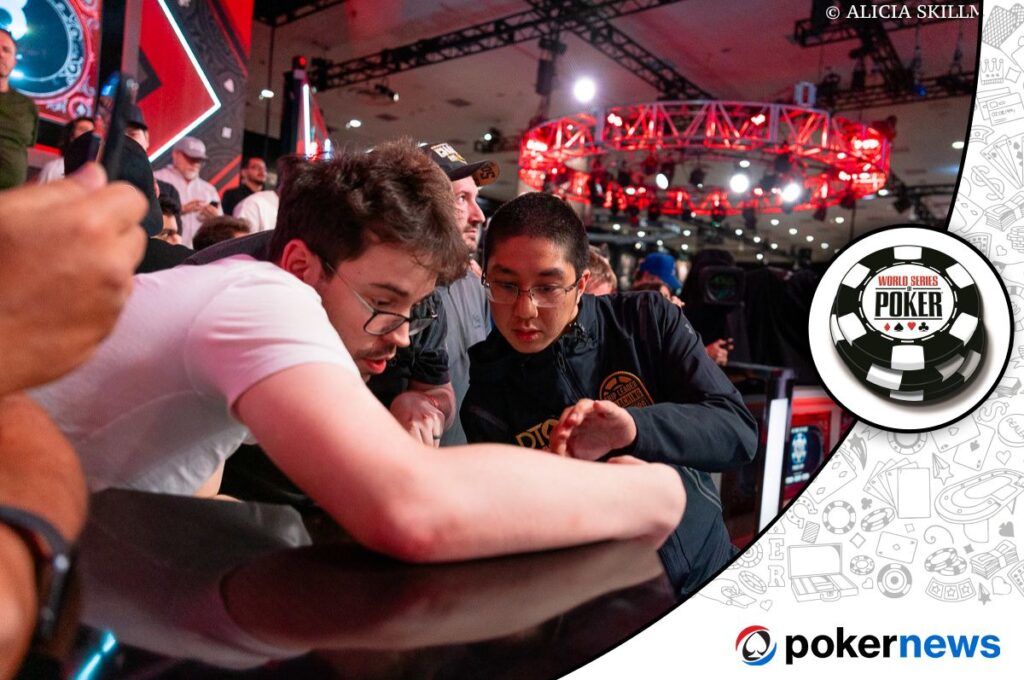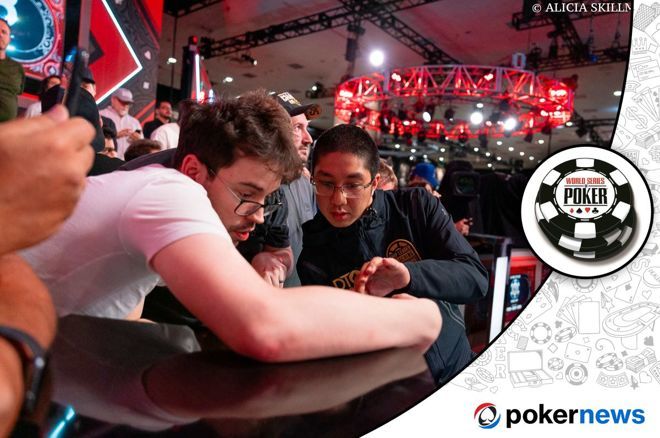
He’s the $10 million dollar man. Instead of a week of celebrating, relaxing and settling into life as poker’s newest world champion, Jonathan Tamayo has had to deal with cheating allegations and accusations of using solvers in the middle of the Main Event final table.
Now, Tamayo has spoken out. In an interview with award-winning podcast The Chip Race, he addressed the concerns of the poker public and said that he would go along with any change in rules to prevent players in the future using solvers on the rail.
Preparing for the Final Table
The trio spoke at length about Tamayo’s career as a cash game grinder, his deep run in the 2009 WSOP Main Event and the role he played in supporting his close friend Joe McKeehen at the 2015 WSOP Main Event final table that McKeehen went on to win.
However, the majority of the discussion naturally was centered on Tamayo’s $10,000,000 victory, and the preparations that went in to his run to the biggest title in poker.
Preparations, Tamayo said, were key on the day before the Main Event final table.
“You have to make a strategy executable,” Tamayo told podcast hosts Dara O’Kearney and David Lappin. “If the strategy is too complex, then you can’t execute it well.
“A strategy that is not as good [but straight forward] is a lot better than something that’s complex and I’m not going to remember.”
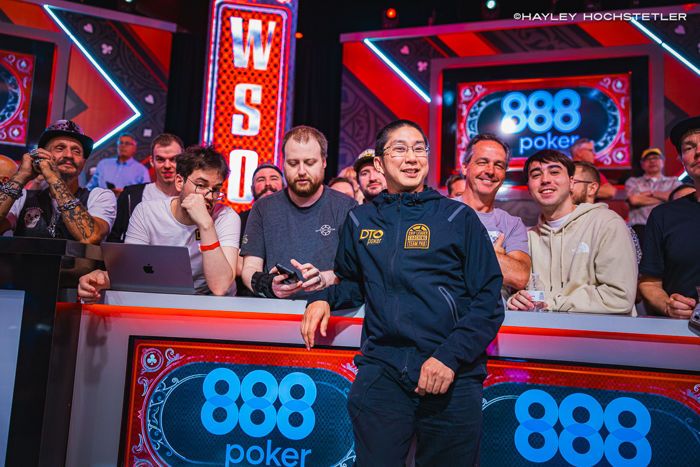
Tamayo was joined by McKeehen and coach Dominik Nitsche to work on effective strategies that Tamayo could implement the following day.
Ironically, he said, the most-studied spot was for a big blind versus button confrontation with Joe Serock, spending 3-4 hours on a spot that Tamayo says never eventually happened.
Nevertheless, the group was keen to ensure that any work they put in would be able to be used the following day.
Taking it All In
Tamayo also said there had been ample discussion on mindset strategy and ensuring that Tamayo was in the right zone.
“It was fun, but it was super stressful fun”
“You’re just making decisions and doing your job. Whatever happens happens. You just have to give yourself the best shot possible and just be prepared.”
Lappin asked Tamayo whether or not he was able to enjoy himself, have fun and take in the surroundings during the biggest final table of his career.
“I took it in a little bit right before the final table started and on the breaks. It was fun, but it was super stressful fun. If you take it in too much you kind of lose your focus so you have to be a little bit careful there. So most of the time it was head down — what am I doing? How am I gonna proceed? Just strategy reminders for myself.”
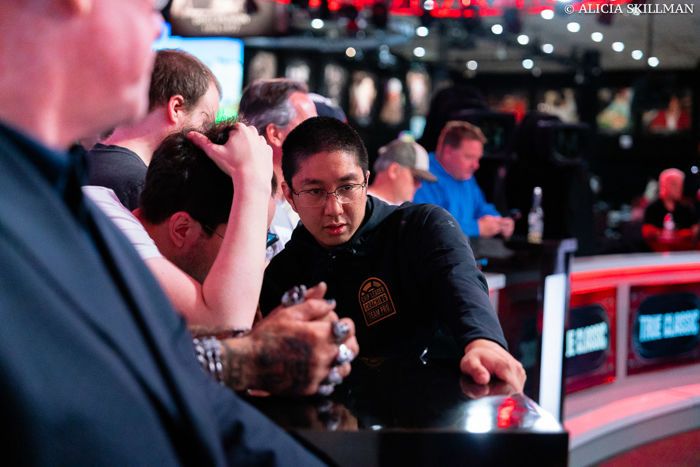
“In-Game Adjustments” with Dominik Nitsche
During the breaks, Tamayo said he spent time with Nitsche, who discussed a couple of adjustments for his play, which continued while playing at the final table.
Photos of the laptop on the rail, with Nitsche and McKeehen hunched over it were all over social media in the wake of his Main Event victory, but Tamayo told the podcast there were no sims on the laptop, and that he personally wasn’t concerned with what was going on.
Instead, he said that any “in-game adjustments” were looked at by Nitsche and McKeehen and communicated to him if necessary.
“If there’s something we need to talk to you about, we’ll talk to you about it”
“They basically told me ‘we’ll handle it, just play. If there’s something we need to talk to you about, we’ll talk to you about it.’ So I was just compartmentalizing what I was going to do.
“[Nitsche] said ‘feel free to make any in-game adjustments on the fly, and if we think they’re incorrect or we see something, we’ll let you know.’ And that’s basically how it was.”
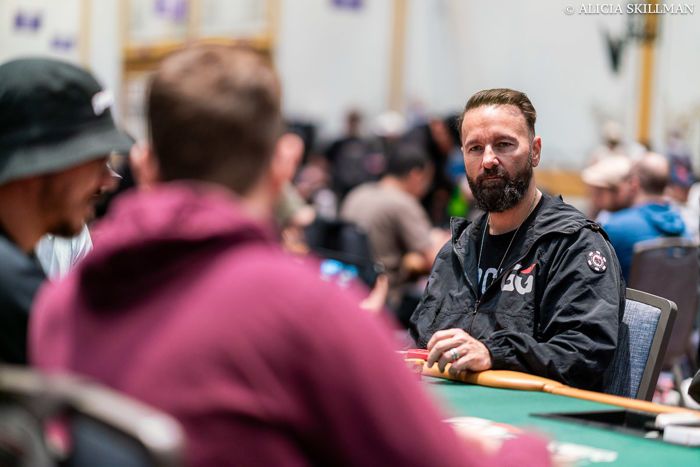
Before Tamayo broke his silence, the poker world had been in a frenzy. Alan Keating was quick to tweet, saying that what happened wasn’t in the “spirit of the game.” Keating then joined former WSOP Player of the Year Daniel Negreanu and Doug Polk on a podcast where Negreanu called for rule clarity and criticizing Tamayo’s railmate Dominik Nitsche for “doubling down” on social media afterwards.
Main Event runner-up Jordan Griff even chimed in, also appearing with Doug Polk to discuss Tamayo’s use of real-time assistance.
“I mean, I think using RTA is going to give an advantage,” Griff said. “Everyone can debate how large that is, and how much it will really help a person. I think it’s hard to quantify that.”
“I talked about [the reaction] with a couple of people,” Tamayo said. “I’m not going to be able to change 90-95% of people’s opinions. A lot of people are saying stuff on the internet, opinions are made.
Tamayo says he himself doesn’t even understand how a lot of the technology works, and it hasn’t been something he’s devoted a lot of time to over the course of his career.
“I haven’t studied solvers, I don’t know how they work. I’ve had a coach on the cash side [of poker] on spots. But I don’t know how to process it. Most of my time and most my hours is spent playing. It’s a delicate balance. Studying makes your play better, but playing is what makes you your money. So where do you stop studying and start playing?
“To me, studying 40 hours and playing 20 hours is not a good use of the time. But studying 2 hours and playing 60 is probably not it either. It’s something I’ve wrestled with for years, so the answer is somewhere in between.”
Will the WSOP Change its Rules?
Back in 2023, the WSOP addressed solver concerns and issued a statement in which they said that any player using real time assistance (RTA) during a hand would be subject to penalty. Additionally, they reserved the right to further penalize a player for using RTA “in any other situation in our sole and absolute discretion.”
It remains to be seen as to whether the WSOP will now more stringently enforce its policy on RTA, and Tamayo says it’s not up to him.
“Fortunately it’s a question I don’t have to answer because I’m not an operator. There’s some debate how we go about coaching now? I don’t know the answer to that.
“They’ll think of something. I joked with one of my friends that I might have a rule named after me now!”




